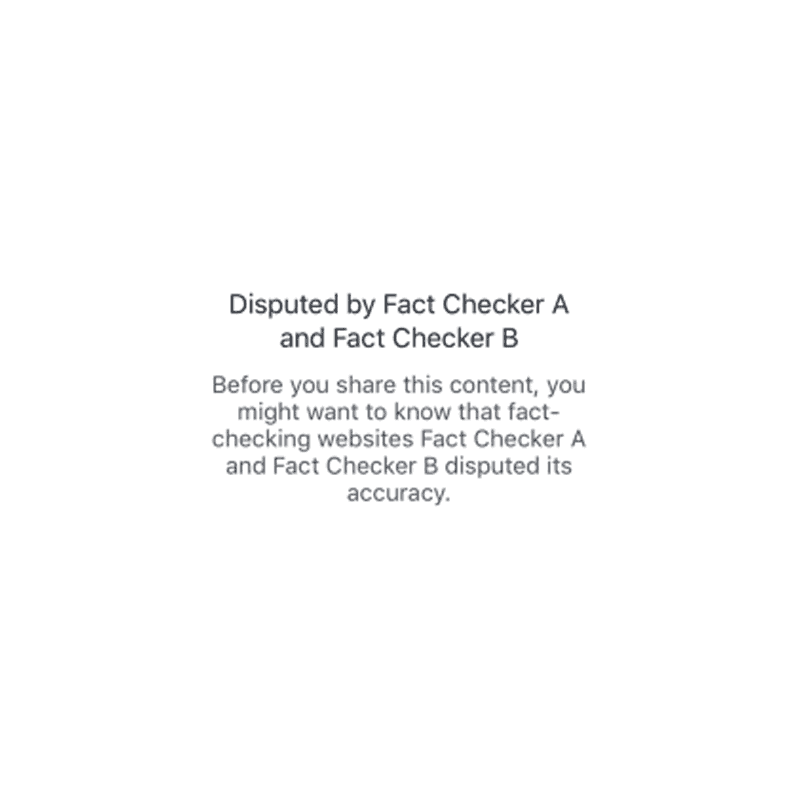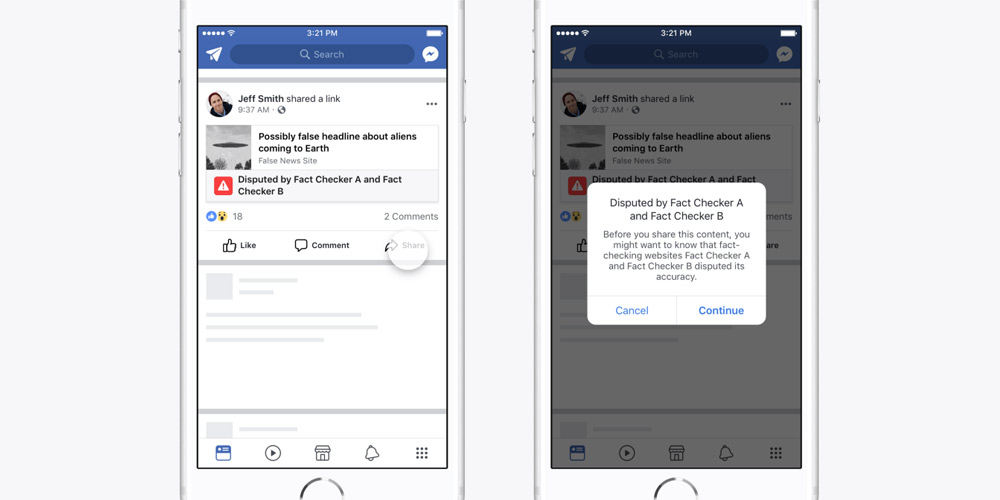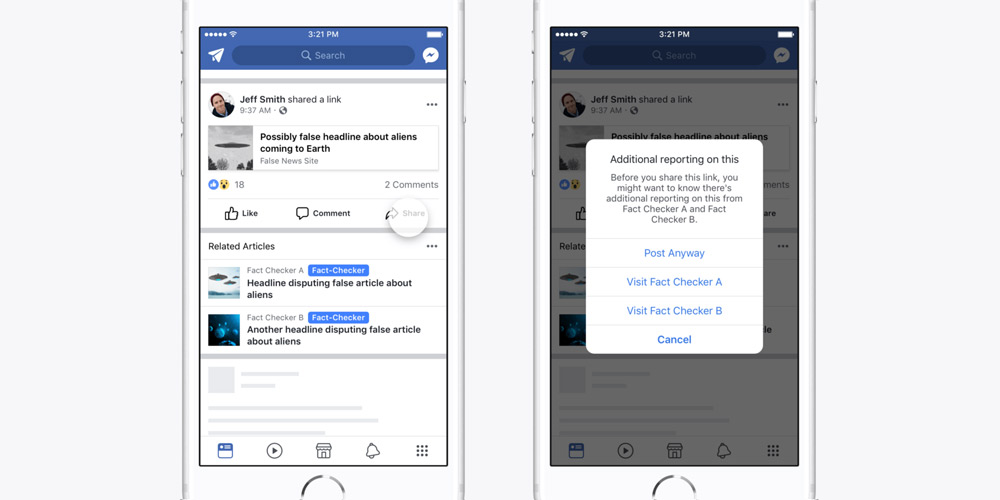
On the web, fake news are everywhere. But as the largest social network on the web, Facebook is in at the center where many of those fake news spread.
The social media had been heavily criticized more than plenty because it was unable to eliminate, or at least having a hard time in limiting the spread of fake news. After the company introduced some strategies and made them work, it's also announcing that it's no longer using the 'Disputed Flag' feature.
Instead, Facebook is using its 'Related Articles'.
After a year of testing and learning, according to the company, this feature gives people more context about the story, with the added benefit of reducing the frequency a hoax article is shared.
Facebook said that:
Related: Facebook, Google And Twitter Commit To Fight Fake News With 'Trust Indicators'

Facebook discovered that the Disputed Flags feature inadvertently buried many critical information that should at least explained the inaccuracies. As a result, it backfired and entrenched a person’s false beliefs.
The fact checking feature seems to be less reliable, too. For example, Facebook was slow to fact check posts (taking around 3 days for a rating), requiring two fact checkers to do the job, and can only work for "false" ratings, and not broader contexts like "partly false" or "unproven."
Facebook tested a tweaked Related Articles with fact-checked articles that appears in News Feed before someone clicks on a link to an article. It discovered that click-through rates on hoax articles didn’t change between the two treatments. However, using Related Articles only, Facebook saw that users share hoax article far less.
Related: Facebook Uses AI To Step Up Its Fact-Checking Against Fake News
The company also cites academic research that correcting a post containing misinformation through related articles can significantly reduce misperceptions.
“Using language that is unbiased and non-judgmental helps us to build products that speak to people with diverse perspectives,” said Facebook in a Medium post.
What's more, Related articles only requires one fact checker to review rather than the usual two. This should speed up the process. Facebook said that it has also placed prominent badges next to each fact checker so users can identify the source.
"By showing Related Articles rather than Disputed Flags we can help give people better context," said Facebook

Publishers of fake news, use Facebook because it enables them to reach a ton of viewers. So here, it's clear that fake news publishers use Facebook to spread fake news because they are financially motivated. They aim for clicks that eventually lead to users visiting their websites that contain ads.
Previously, Facebook said that it’s making progress on preventing the spread of false news, by demoting fake news posts which resulted in a decrease in their traffic by 80 percent. It also had tried in eliminating fake accounts that were tied to fake news distribution. It has also joined the First Draft Coalition, an Alphabet-backed venture (Google News Lab) formed in June 2015.
"This destroys the economic incentives spammers and troll farms have to generate these articles in the first place," said Facebook.
If Facebook sees that someone kept on posting and sharing fake news, the social media will take away their advertising rights, decreasing their distribution, and restricting their opportunities to monetize on its platform.
And for last, Facebook also announced an initiative to better understand "how people decide whether information is accurate or not based on the news sources they depend upon." This initiative won't give a direct impact on how the News Feed work, but it may help Facebook in better measuring its success in improving the quality of information on the platform over time.
Further reading: "Passively Consuming" Facebook's News Feed Will Make You Feel Bad About Yourself